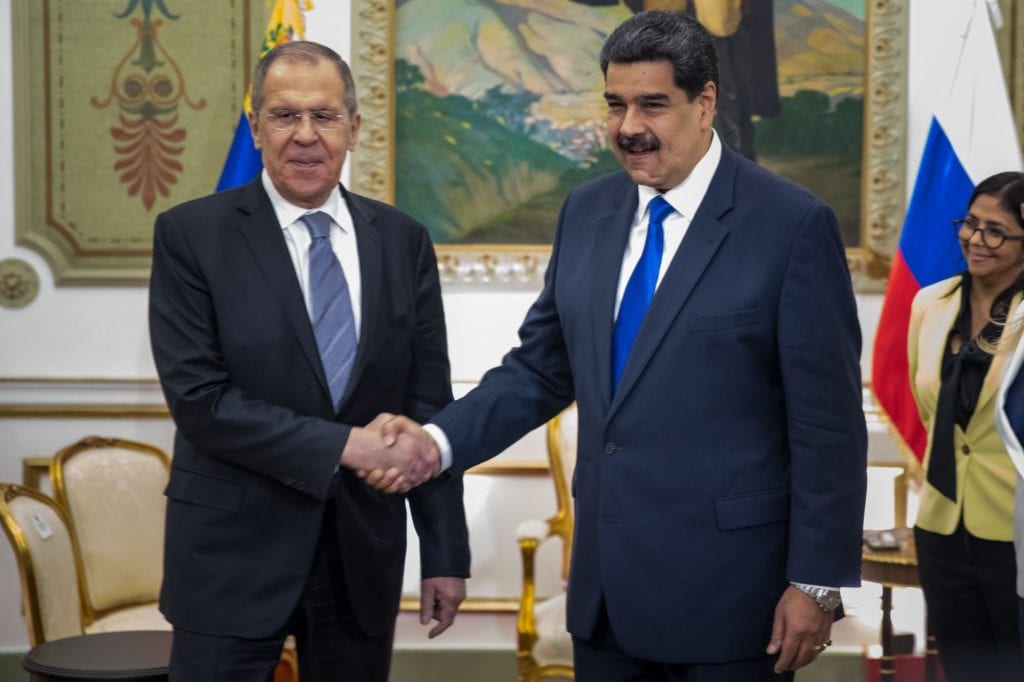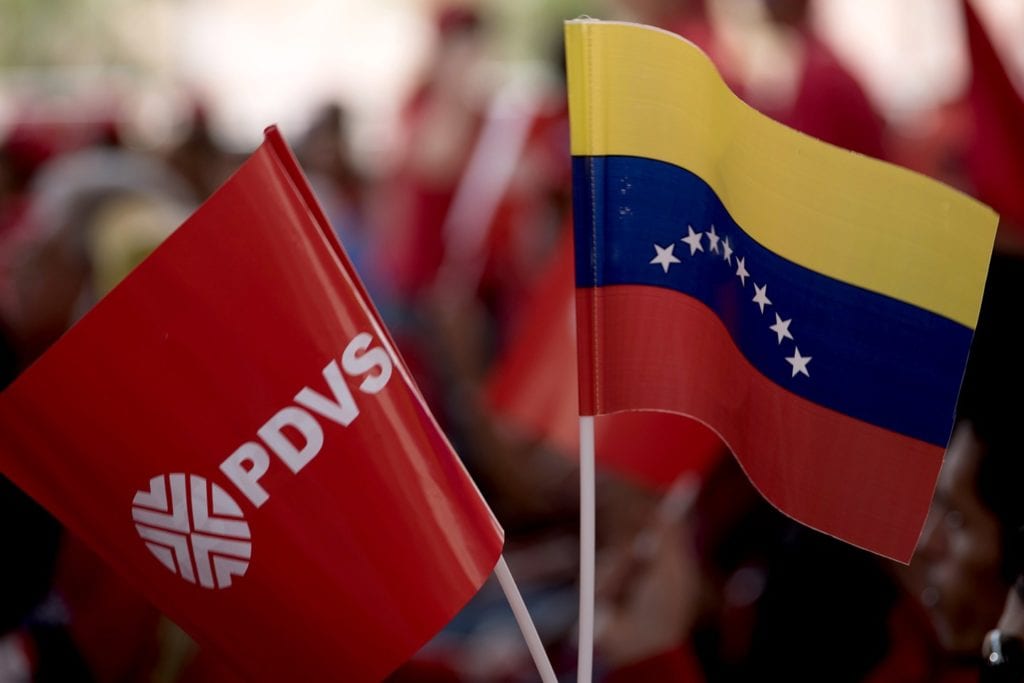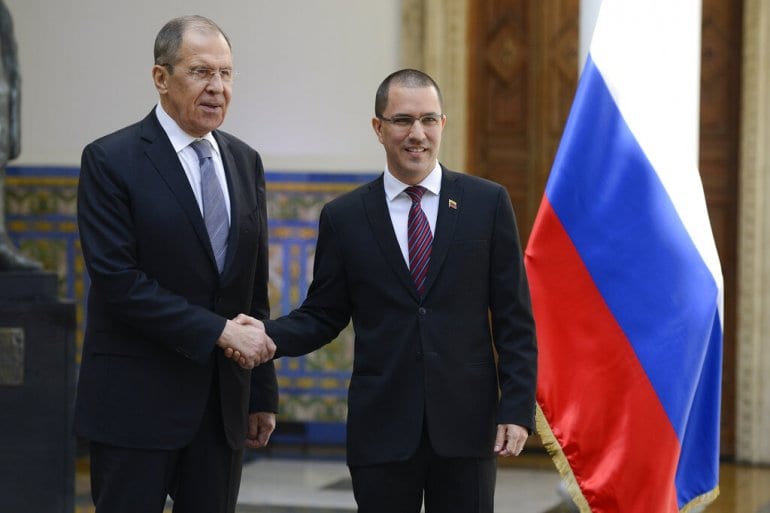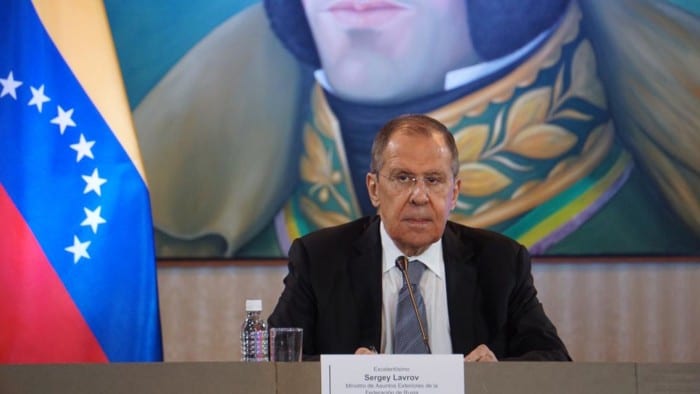In the first week of February, the head of the Russian foreign ministry made a “Latin American tour”, visiting Cuba, Mexico and Venezuela for three days. In the Western Hemisphere, where the White House is trying to revive the infamous Monroe Doctrine – this was openly discussed in Washington last year – Sergey Lavrov announced the White House’s obsession with the “dictate idea” in the Latin American region. How did the Russian Foreign Minister meet Caracas? What are the results of the meeting between Lavrov and the representatives of the top leadership of Venezuela?
On February 7, the Russian minister arrived in Caracas as part of his three-day “Latin American tour”. The last time Sergey Lavrov visited Caracas on a working trip in 2011, when Hugo Chavez (Spanish – Hugo Rafael Chávez Frías) was still alive. This time, the head of the Russian Foreign Ministry held three meetings at once with theb representatives of the Venezuelan government: with the President of the Republic of Venezuela Nicolas Maduro (Spanish – Nicolás Maduro Moros), as well as with the Foreign Minister of the Latin American country Jorge Arreaza (Spanish – Jorge Alberto Arreaza Montserrat) and the Vice President Delcy Rodriguez (Spanish – Delcy Eloína Rodríguez Gómez).
At a press conference in the presidential palace in Caracas, Sergey Lavrov immediately admitted that he “feels like at home”. It was in this palace in the Venezuelan capital on February 7 that Lavrov held extensive negotiations with the President of the Bolivarian Republic, Nicolas Maduro, the main topic of the meeting was the further deepening of the bilateral strategic partnership.

With the Venezuelan leader, who is expected in the Russian capital in May for celebrations on the occasion of the 75th anniversary of the Great Victory, Sergey Lavrov substantively discussed ways to build economic ties in the context of Washington’s illegal sanctioned policy. In addition, the Russian Foreign Minister reiterated the commitment of Moscow and respect for the sovereignty of Venezuela, solidarity with the Venezuelan leadership and people in their opposition to the illegal pressure exerted by the United States and their allies. Lavrov noted that the Russian side rejects illegal sanctions, methods of blackmail and dictatorship in international relations, any other steps that undermine the principles of the UN Charter, first of all, interference in the internal affairs of sovereign states and attempted threats with the use of force.
By the way, the Russian Minister of Foreign Affairs has repeatedly returned to the thesis that the White House violates international law by imposing restrictions on legitimate trade and economic relations between sovereign countries. This topic was also touched upon during Lavrov’s negotiations with the Venezuelan Executive Vice President Delcy Rodriguez, as well as with the head of the Foreign Ministry of this Latin-American country, Jorge Arreaza.

It is worth noting that the “Latin American tour” of Sergey Lavvrov, which Western Medias have called a trip to the “backyard” of the United States, coincided with a new “portion” of threats from the White House to impose sanctions against Russian structures collaborating with the Venezuelan oil corporation PDVSA. On February 6, the US Presidential National Security Advisor Robert O’Brien made an official statement saying that Washington was ready to take action against the Russian company Rosneft. The response of the Russian Foreign Minister was not long in coming. Lavrov said that he had already heard about the next threats coming from Washington to punish everyone who somehow cooperates with Venezuela. The head of Russian diplomacy noted that Moscow was already accustomed to such actions.
Returning to the events in Venezuela, it is important to recall that on January 21, 2019, mass protests began against the President Nicolas Maduro shortly after being inaugurated in. The head of the National Assembly, controlled by the opposition, Juan Guaidó (Spanish – Juan Gerardo Guaidó Márquez) illegally proclaimed himself the interim head of state. A number of Western countries led by the United States announced the recognition of Guaidó as the leader of this Latin American country. In turn, Maduro called the head of parliament “the puppet of Washington”. Russia, China, Turkey and several other countries supported Maduro as a legitimate president. The Russian side called the “presidential status” of Guaidó nonexistent.
At the moment, Russia advocates building a dialogue between all political forces to resolve the conflict. During his visit to Caracas, Lavrov stated that Moscow regrets that negotiations for a settlement in Venezuela as part of the international “Oslo process” are stalling due to the position of Juan Guaidó, who illegally proclaimed himself the interim president of the Latin American country. The head of the Russian Foreign Ministry mentioned that Russia and Mexico advocate that the problems of Venezuela be solved not on the basis of the Monroe Doctrine, as it comes from Washington, not on the basis of attempts to provoke a violent confrontation in order to have a pretext for armed intervention, but exclusively peaceful ways through the dialogue of all political forces. He noted that the Russian side believes that such a dialogue should become more inclusive.

An important point in the program of Sergey Lavrov’s visit to Venezuela was the participation of the head of the Russian foreign ministry in the “round table” of the National Dialogue, the main platform for resolving the political situation in the country after mass opposition protests. As part of this event, Lavrov expressed full support for the efforts of the President of Venezuela Maduro, the leadership of the Latin American state to establish a national dialogue, to ensure the participation of all sectors of society in deciding the fate of his country. The head of Russian diplomacy emphasized that only the Venezuelan people have the right to decide the fate of their country, and Russia will do everything in its power to support just such an approach.
Of course, the beginning of February was not easy for Venezuela. This Latin American country again returned to the front pages of the world Medias, and this happened in connection with two international “tours”. One of them was made by the former chairman of the National Assembly, Juan Guaidó, whom the United States and Western states recognize as the country’s interim president in order to gain support in the fight against Nicolas Maduro. And the second is the head of Russian diplomacy in order to help not only the official leader of the Bolivarian Republic, but also guarantee Russian interests in the region. Thus, Moscow again demonstrated to Washington that Russia is confidently strengthening its position in the “backyard” of its historical adversary.
At the moment, it is highly unlikely that Washington will soon leave the “Venezuelan question”, but so far the capabilities of their ally Juan Guaidó have significantly decreased compared to last year, when he was still “on a roll”. In general, Lavrov’s “Latin American tour” confirmed that Russia’s support could not only strengthen Maduro’s position, but also help Venezuela maintain its economic potential. Thus, it is very obvious that the White House will have to develop a new way to maintain its influence on Caracas.


